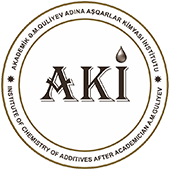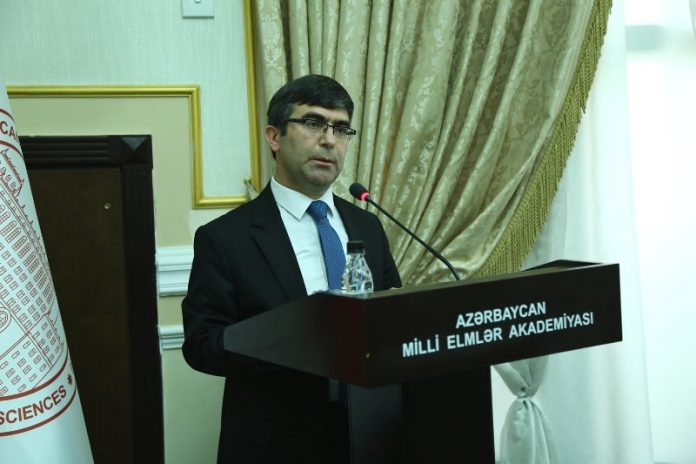The potential of our famous scientists working in the world’s leading scientific centers should be directed to the development of our academic science in priority areas
There are a number of problems hindering the integration of Azerbaijani science into world science, the most important of which is related to the training of highly qualified personnel in research institutions. In other words, the training of scientists and specialists who fully comply with international standards is at a very low level today. There are also objective reasons for this.
We should admit that the existing laboratories of institutes specializing in the exact and natural sciences are very weak in their ability to conduct scientific research in selected priority areas that meet the modern challenges of world science. The most modern instruments and equipment, which are updated every year, every month, every day, are found only in a small number of laboratories, and it is not possible to fully use their capabilities. In other words, our research institutions either do not have the latest instruments and equipment available in the world’s leading centers, or even if they do, there are no specialists capable of accurately processing the information obtained from these modern instruments and equipment.
The way out of this problem is to attract talented young scientists and specialists in priority areas for short or medium-term internships in the world’s leading scientific centers.
If you remember, earlier in the annual budgetary expenses allocated to Azerbaijan National Academy of Sciences (ANAS), a certain amount of money was provided for the training of scientists in foreign countries. At the expense of these funds, scientists and specialists were sent to foreign research centers. Evaluation of how effective this process was at the time, whether the trainees returned after their internship, the level of application of the experience they gained on the spot and what contribution they made to the Academy during this period is the subject of a separate study. The main thing is that for more than 10 years there has been no such item in the budget of ANAS, and even when the need arises, there is no way to send someone abroad for an internship.
I want to clarify my point of view with a concrete fact. There has recently been a need for physical and chemical analysis instruments for structural analysis of new substances synthesized by doctoral student Ibadulla Mahmudov in the doctoral program in organic chemistry at academician A.Guliyev Institute of Chemistry of Additives of ANAS, where I was the supervisor. In addition, it was difficult to separate the target product from side products in reactions in DMSO medium by conventional chromatography. Additional experience in product purification on HPLC and Flash chromatography devices was required. In order to perfectly implement these methods, it was necessary to send I.Makhmudov to one of the leading European universities in the field of chemical synthesis and catalysis. To this end, we contacted Kamran Mahmudov, a well-known Azerbaijani scientist working at the University of Lisbon, Portugal, Doctor of Chemical Sciences, he offered his help, prepared and sent an invitation letter from the University in a short time. We only needed to pay for the airfare, visa, accommodation and daily meals of our doctoral student. We calculated that these expenses for a 6-month internship amounted to 9-10 thousand manats.
For this purpose, we turned to the former president of ANAS, academician Ramiz Mehdiyev. Soon we got the Academy first person’s answer: “It is recommended to cope with taking into account the internal capabilities of the Institute.” For information, I want to inform you that research institutions are allocated salaries of employees and utility bills. Payment for work performed on the basis of business contracts, and non- governmental orders, is also expressed in small amounts. In a word, we could not make this “impossible” possible even with the internal capabilities of the institute. But we had specific and clear goal. In any case, we had to send the doctoral student to this research center. Because the winner in this process in the narrow sense would be the doctoral student Ibadulla Mahmudov, and in the broad sense – the Azerbaijani science, in particular ANAS.
After long consultations with Ibadulla’s other supervisor, Associate Professor Yusif Abdullaev, Ph.D., we had to cancel our planned scientific trip to the Computing Center of the University at Buffalo, USA, and without hesitation, we decided to help our doctoral student achieve his goals, and I think it’s right. Because all our efforts have already paid off and our expectations have been justified. The results achieved in a short time are obvious. Firstly, during the trip, the young doctoral student gained extensive experience in the field of fine organic synthesis, and also acquired knowledge related to modern methods of synthesis and physico-chemical analysis, which will be used here for the preparation of doctoral students and masters.
At the same time, during a business trip, I. Makhmudov, as a result of his research on modern topics that attracted the attention of world chemists, obtained unknown in the literature metal complexes of new heterocyclic compounds containing nitrogen and sulfur atoms, studied and confirmed in detail their complex structure and innovativeness, and it can be expected that the computer-experimental study of the mechanism of many reactions, the important results obtained in relation to their physiological properties (antioxidant, inhibitory effect on isoenzyme enzymes) will make a certain contribution to world science. Because in a short 2 articles on the results obtained, published in journals with a high impact factor “Journal Arabian Chemistry” (IF-6.212) and “Acta Cristallographica” ((IF – 2.29) of the publishers “Elsevier” and “Wiley”, included in the databases “Web of Science”, “Scopus”. More 2 articles were prepared and sent to other high-ranking journals.
According to the Google Scholar and ResearchGate scientometric databases, the first article was cited by world scientists about 20 times even 2-3 months after its publication in the Journal of Arabian Chemistry.
The aforementioned fact suggests that this experience justifies itself and should be extended without delay to all other priority areas of our academic science.
As you know, our well-known Azerbaijani scientists work in the most relevant and priority areas of science in many leading scientific centers of the world. Jamaladdin Musayev in the field of computer chemistry in the USA, Garib Murshudov in the field of molecular biology in England, mathematician Masud Efendiyev in Germany, Suleiman Allahverdiyev in the field of plant physiology in Russia, Kamran Makhmudov in the field of catalytic chemistry in Portugal, Tarlan Mammadov in the field of molecular biology, molecular biotechnology and biochemistry in Turkey, etc. These are the scientists who have spoken and represent our country in the world. Why not to use their potential for the bright future of Azerbaijani science? Indeed, the Institute of Molecular Biology and Biotechnology of ANAS can take advantage of the opportunities of biologists, whose names I have listed. But even if it is considered appropriate, it may not be enough. First of all, it is necessary to organize a broad discussion on the topic “Azerbaijani science today and tomorrow: problems and prospects for the future” with the participation of our well-known scientists working in foreign countries, listen to the experience of the country they represent, and determine the possibility of developing our academic science in based on country experience.
At the next stage, joint international laboratories should be created in our scientific institutions specializing in the exact and natural sciences, the activities of which should be directly related to the scientific activities of our scientists working in leading scientific centers abroad. The annual activity plan of those laboratories that are equipped with the most modern instruments and equipment, have access to electronic libraries, modern international search programs, all authoritative scientific databases, global scientific networks, should be prepared on the basis of the subject of joint international research, additional funding and incentives for conduct these studies at a high level, and its activities should be based on such international principles as accountability, transparency and efficiency. International laboratories should be assessed twice a year based on international criteria.
At least 2 young specialists admitted to the magistracy and doctoral studies of international laboratories should be sent for an international internship at the research center where this scientist has been working for at least one year. Returning to Azerbaijan after gaining full experience should be one of the main conditions. Many of our scientists who went abroad to learn from previous experience later decided to stay and work there. Now we need more specialists with advanced experience in our country. We understand that it is difficult to achieve all this at once. But you have to start somewhere. Let’s not forget that the continuous and comprehensive development of our Azerbaijan is impossible without science and the Academy of Sciences.
Afsun Sujayev,
Executive Director of the Institute of Chemstry of Additives,
Doctor of Science in Chemistry, Associate Professor


